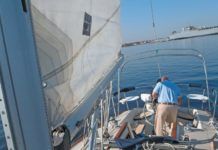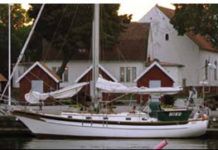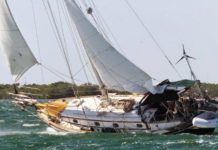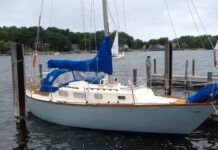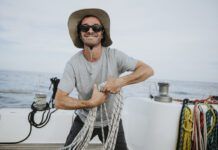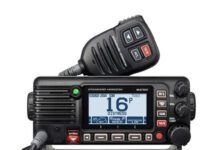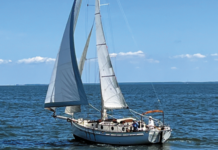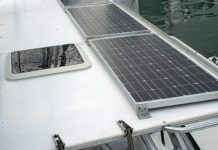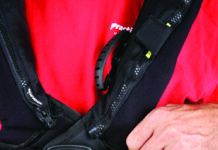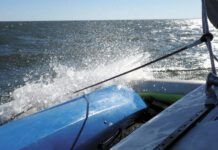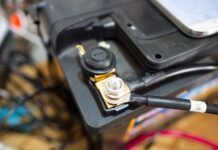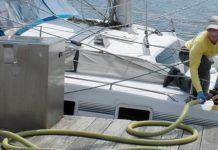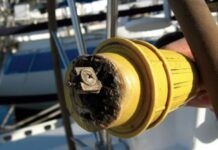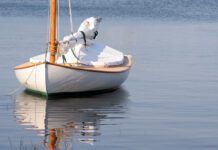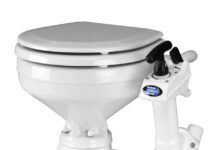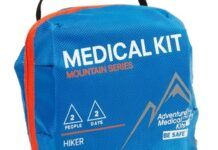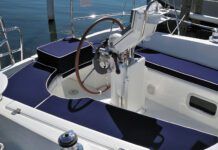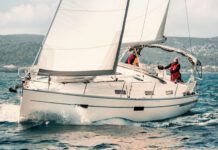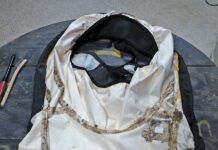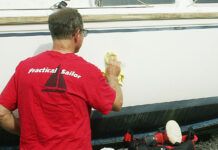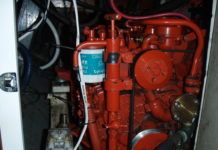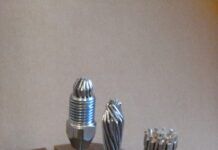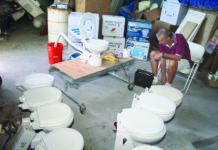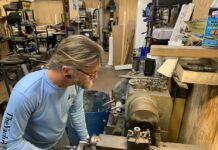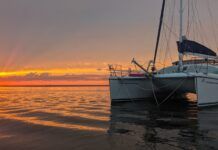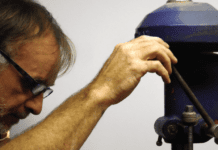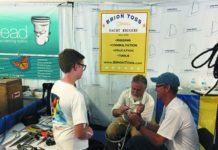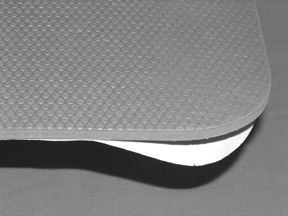
Late last year, Chuck Yates, the co-creator of SeaDek (with Jim Wilson), contacted PS from Rockledge, FL, and sent several samples of this alternative to traditional nonskid. Initially, we were skeptical of a product for the marine environment that is based on a peel-and-stick application method. But we applied it to the cockpit sole of one of our test boats, and have used it since.
SeaDek is made of non-absorbent, closed-cell EVA foam (ethylene vinyl acetate). EVA is known to be highly flexible, capable of excellent adhesion to a wide range of surfaces, and resistant to tearing. Think flip-flop sandals, and you’ve got the idea.
But there are many different recipes for EVA. “Our’s,” explained Yates, “is a little different; it’s specifically formulated for marine use. We asked our supplier to make it resistant to oil, gas, and UV damage, and create a product that doesn’t shrink.”
Yates developed SeaDek in conjunction with partners who run a surfing products company, selling, among other things, durable nonskid pads for surfboards. The pressure sensitive adhesive that is used to apply SeaDek to decks, steps, hull interiors, and about anything else the end user can conceive, was developed for SeaDek by a large corporation in the U.S., which Yates prefers not to name.
This product, claimed Yates, will relieve the strain on your feet and legs while you stand on it. Though PS can’t substantiate that claim, we can affirm that after almost six months, the product’s adhesive shows no signs of easing its tenacious grip on the cockpit sole. And, the textured nonskid—an embossed pattern that Yates refers to as “micro-dot”—appears to have suffered no wear and tear. (He says the life expectancy of the product is between 7 to 10 years.) Regarding its functionality as a nonskid surface, SeaDek lives up to its claims. We’ve had ample spray in the cockpit and felt quite secure even while heeled.
The product comes in six different shades, and three different thicknesses (3, 5, and 16 mm). You can purchase Sea-Dek in large sheets (18″ x 74″), die-cut pads (10″ x 20″ or 14″ x 36″), or something called “helm station pads,” which are 16 mm thick and come in two different sizes. Prices range from $13 for the smallest die-cut pad to $115 for a kit containing five 18″ x 38″ pads. It can be custom-cut by the user, and Yates said his company has recently purchased a computer-aided cutting machine that can produce custom sections. SeaDek can be purchased online or through a list of dealers (most of whom are in Florida) housed on the SeaDek website.
SeaDek is priced favorably in comparison to another popular decking material—Treadmaster ($4.94/sq. ft. for SeaDek; $7.08/sq. ft. for Treadmaster, and that doesn’t include the epoxy needed for the latter). And though it’s slightly more expensive than non-skid additives for paint, it’s certainly easier and faster to apply.
Contact – SeaDek, 321/632-4466, www.seadek.com.


